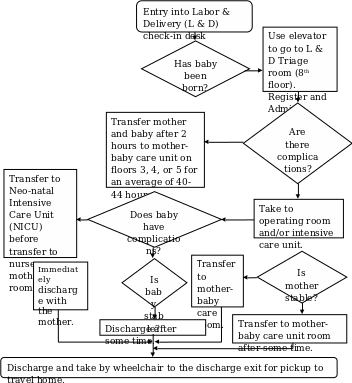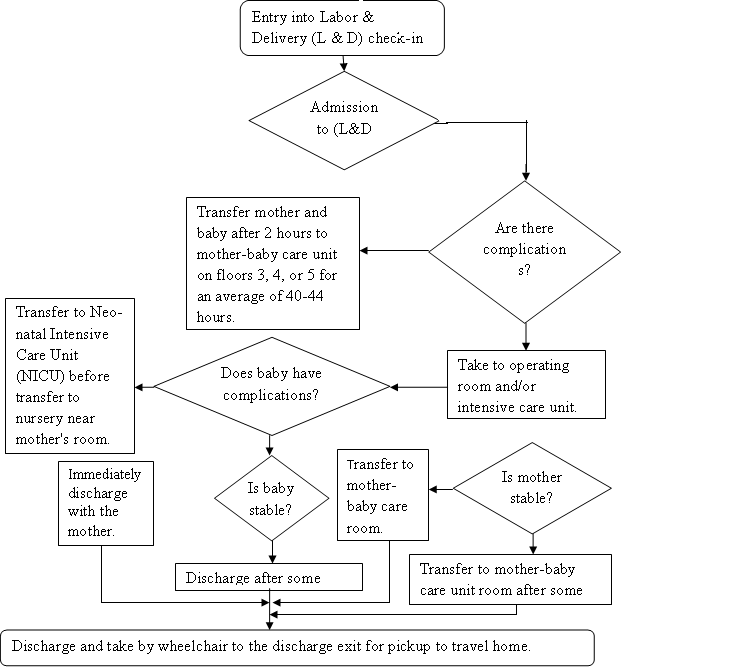
Ways of improving the system
Accommodation procedures should be reduced for the pregnant women. This will help cater for personal and unborn babies’ needs (Susan, 2003), thus ensuring the well being of the pregnant women. The pregnant women should not be made to wait for a long time; this can be done by shifting the preregistration process to the point of entry. The management should also purpose to include hot water barrels (Loafman, 2009) as preferences for most of the pregnant Women. The new flowchart will thus be as follows;

Changes in the Flowchart Incase Of Caesarean Birth
In the case of caesarean birth, expectant woman will need to follow a different procedure, this will ensure risks are reduced and maximum attention is given to the woman. If the birth is successful, then the mother and the baby should be given enough time until stabilization. In case where the baby is unable to stabilize for purposes of discharge, then both the baby and the mother should be given accommodation and discharged later. The mother should not be discharged without the baby (Susan J, 2003). This is done to ensure the mother is at peace and assist in preventing unnecessary panic as to the well being of her baby.

For mothers who undergo caesarian birth their flowchart will change as follows:
There will be a reduction in the number of steps. Step 3 will no longer be appropriate as the pregnant woman will now skip this step and will directly be taken to Labor and Delivery (L&D) room on the 2nd floor.

Preregistration process; the hospital should ensure that all pregnant women who wish to deliver in their hospital are preregistered early enough to prevent delay in the process of admission especially for emergency cases ((Roger, 1985).
In sum, caesarian birth process; the hospital should also analyze caesarian birth cases and keep a well record of this to ease their future encounter with the same mother. They should provide registration form which captures this. If this is implemented, any second admission of the Mother will be treated differently from the other mothers to ensure her security and quick attention by the staff. This will limit death and risk cases. Faster attention to caesarian birth patients reduces chances of risks involved
References
- Loafman, M. (2009). Improving Maternal and Child Health Outcomes. Family Medicine Obstetrics and the HRSA Perinatal Collaborative Project. American Journal of Clinical medicine.
- Roger, K. (1985). Delivering Safe; Protecting Your Baby During High Risk Pregnancy. Facts on File publishers. ISBN-13: 978-0871966667.
- Susan, J. (2003). A Better Woman: A Memoir of Motherhood. Washington Square Press Publishers.ISBN-13: 978-0743432979.

